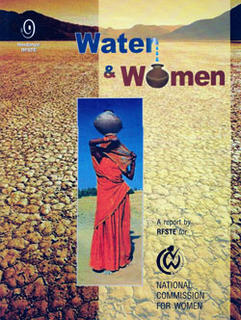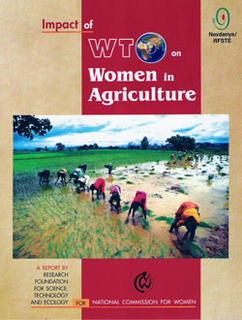

Recently, i got to read about the changes that have been made to the Hindu Succession (Amendment) act. For those who aren't familiar with the act, the goverment of India issued the Hindu Succession Act in 1956 and effective Sept, 9th 2005 the Amendment to this act has been made.
Purpose of the act: The Hindu Succession (Amendment) act is mainly to eliminate gender discriminations from its earlier act by providing several rights to daughters or females that weren't there before.
It covers the following areas and provides benefit relief for women under several broad circumstances.
- Agricultural land: The new 2005 amendment declares that all agricultural land can be inherited equally by women, irrespective of the different state laws and can thereby benefit all those women who are dependent on agriculture for their day to day survival.
- Mitakshara coparcenary property: This includes daughters as co-parceners (A coparcener is one of two or more persons sharing an inheritance, a joint heir) with same birth rights as sons to share, to claim partition and also share liabilities in a joint family property.
- Dwelling house and Widow's claims: All daughters can from now on have the same rights as sons to stay in or seek partition of a family residing house. In the past, married daughters were denied residence rights in parental homes while unmarried, separated, widowed daughters could stay but not have parition rights.
What this means for a common woman living in a village in India:
This means a lot for daughters and widowed women, especially the poor and abused. By getting equal rights in agricultural land, several poor women have the opportunity to bring in a steady income to the household, improve productivity and also gain independence from drunk and abusive husbands. I can only think what a blessing it would be for an uneducated, poor, ill-treated nari from a remote village in Andhra or Bihar to own a small field. The coparcenary laws bring a new vision to the male-dominated Indian society by treating daughters and sons equally. This also drives home the hard lesson in a society which thinks that after marriage a daughter belongs to only the husband's family. Finally, the dwelling house rights would come as a boon for the women who suffers domestic violence as she will have a place to go.
I am sure that all this has taken ages to implement and work on both at the Rajya Sabha and a lot of effort on the goverment and several committee sessions. Women seeking right to own property and rights for land is only the beginning light to a dark tunnel that millions of women in rural India are still groping in.













5 comments:
Good information, superbly written.. It is high time rural women are treated with due respect.
There was a small discussion in Aparna's post when Keerthi opened the topic on what the opinion of the modern working woman is.. What is ur opinion about it?
I hope this info is being made aware to the grass root level. But as in every social awareness issues, implementing in real life would take some more time.
Scenario which may not have been addressed?: Is the woman eligible for BOTH ancestral property from her parents side and god-forbid, if she is widowed, from the in-laws side too?.
Now that would not be equality in gender, would it?.
Nice of you to have highlighted this information. Hope this helps the women in need.
My mom used to say that the whole dowry, 'seeru' concept for a girl is due to her having no-rights on her parents' property. Like Deepak has pointed out, though one part of it is dealt with, the other one is not.
I also read recently that Andra govt. is planning to make education free for families with 1 girl.
nice, socially conscious post. but most important IMO is education. we have all these new rules that u and i know about. but without education, the women these changes are for won't even know about them.
raju: thanks. I don't remember exactly which post it was and maybe i would have commented on that, but yes, i do have strong feelings about modern women who work. I really admire, appreciate them as they often juggle around and balance family,career, relationships etc.
ttg:I am not sure on whether a widowed woman is eligible for receiving property from both sides, but my guess would be yes.
aparna:yes, the "dowry" concept etc is so damn frustrating and unacceptable. I even find it hard to accept these days, the male's family who doesn't want to chip in for the wedding and all expenses fall on the bride's family. I hate this whole gender difference chavinism approach. How i wish, times would change when 30-40 years later our children would not have to go through any of this crap.
balaji:very true-education is key to comunicating these laws to the common man and i hope that someday soon all women would have atleast basic education in India.
priya:thanks-i hope that this brings about big time relief for suffering women even if there are some loopholes in the law and system. As long as some benefit is received for these people, then its ok. Nayagan dialogue solanam pola iruku-"Naalu peruku nalathu seiyanumna ethuve thappu illa."
Post a Comment